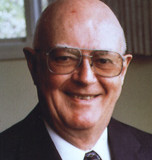Tagged: “forgiveness”
Is it possible to forgive someone who is deceased? If so, what would the forgiveness look like?
Yes, you can forgive someone who is deceased. Forgiveness includes thoughts, feelings, and behaviors. One can think of the other person as possessing inherent (unconditional) worth. One can cultivate feelings of compassion for the person, not because of what he or she did, but in spite of this. Even behaviors can be a part of the forgiveness. For example, one might donate to the deceased person’s favorite charity. One might say a kind word about the deceased to family members. Depending on one’s religious beliefs, the forgiver can offer a prayer for the one who died.
For additional information, see: Forgiveness Defined.
Reflections for the 25th Anniversary of Our International Forgiveness Institute, Inc.
It was the early 1990’s and I just recently did an interview for a Chicago newspaper. The journalist published my home telephone number within the article. For the next two weeks, it seemed as if the phone just would not stop ringing. The people who called were seeking information about how to forgive. “There is a genuine hunger out there for people to know how to go about forgiving,” was my conclusion to family and colleagues.
about how to forgive. “There is a genuine hunger out there for people to know how to go about forgiving,” was my conclusion to family and colleagues.
Because we had published the first-ever empirical article on forgiveness in a peer-reviewed journal article only a few short years before this, in 1989, there was little out there instructing people on how to forgive those who have deeply hurt them. Because of the ground-breaking work of Msgr. John Hebl, with whom I had the honor of publishing the second-ever empirical article on forgiveness in a journal, in 1993, there was emerging scientific support for our Process Model of Forgiveness.

William Walker
About this same time, the late and great Dr. William Walker of Madison, who ran radio stations, wrote a letter to me (email was not big yet). He explained that many years ago, he received his doctoral degree from the Department of Educational Psychology at the University of Wisconsin-Madison, where I was (and am) a professor. Dr. Walker explained to me that he was drawn to our forgiveness work, had the financial means to bring this to an important level, and he had an interest in joining the research. I enthusiastically agreed and a strong collegial relationship and friendship developed.

Tom Walker
When my dear friend William passed away, his son Thomas Walker took up the cause and provided the necessary funding to keep the IFI viable and expanding, as he does to this day.
Thank you, William and Thomas!
Given that we were getting some financial support and the many requests for forgiveness information continued, some of my colleagues and I decided to try to form an entity with the goal of serving people who wanted information on how to forgive. This was to start as a service entity for all who were interested in forgiving.
Our little group decided to take the non-profit route and developed the 501(c)3 entity, the International Forgiveness Institute, Inc. (IFI) in Madison, Wisconsin in 1994. A Board of Directors was formed to help guide the development of this organization. Thank you, Board Members, for your dedicated service to our IFI! At the time of its formation there was nothing “international” about this organization. Yet, it was the vision, the promise of such expansion, that led to our keeping that word “International” in the title. We, of course, started small, without even a website.
International Forgiveness Institute, Inc. (IFI) in Madison, Wisconsin in 1994. A Board of Directors was formed to help guide the development of this organization. Thank you, Board Members, for your dedicated service to our IFI! At the time of its formation there was nothing “international” about this organization. Yet, it was the vision, the promise of such expansion, that led to our keeping that word “International” in the title. We, of course, started small, without even a website.
A major turn occurred for us at the beginning of the 21st century. Because our work was having success in the mental health field with our Process Model of Forgiveness, I had an idea: Why not start to introduce forgiveness to children and adolescents? After all, if they will experience injustices, perhaps even severe injustices in this world, why not equip them with the scientifically-supported approach of forgiveness to reduce the resentment, caused by the injustices, so that they can be resilient in their emotional well-being and in their healthy family interactions?
With the idea of prevention in mind, we decided to build forgiveness curricula for children, starting in first grade (age 6 and 7). We did so through age-appropriate children’s stories, such as Dr. Seuss’ Horton Hears a Who. The children, in their own classrooms, then begin to see what forgiveness is, how story characters navigate interpersonal conflict, and what happens when people forgive. We piloted this curriculum for the first time in Belfast, Northern Ireland, did the research on this endeavor through the university, and published the first empirical evaluations of this work in 2007.

Primary 3 students at Holy Family Primary School in Belfast celebrate their “Forgiveness Graduation.”
The results were dramatic! Children, upon hearing stories and reflecting on the theme of forgiving, actually reduced in their own anger. Teachers saw greater cooperation among students in classrooms and teachers reported to us that they, themselves as teachers, improved in their own teaching skills as a result of being a forgiveness instructor.
The Forgiveness Education project grew to such an extent that we now have a complete set of curriculum guides from pre-kindergarten (age 4) all the way up to the end of high school (age 18), including an anti-bullying guide and two guides for parents: A Family Guide (for those with primary-aged children) and Strengthening Families (for those with middle-school aged children). Dr. Jeanette Knutson, Amber Osmulski, and Dr. Matthew Hirshberg helped to craft these guides. Thank you, Jeanette, Amber, and Matthew!
 The Forgiveness Education curriculum guides have been ordered by educators from over 30 countries across the world. Other international endeavors include both the Jerusalem Conference on Forgiveness and the Rome Conference on Forgiveness and a new Forgiveness Education initiative in Bethlehem in the Middle East. Thank you, Mr. Thomas and Terri Lucke, for your generous funding! We now, I think, have earned the word “International” in our organization’s title.
The Forgiveness Education curriculum guides have been ordered by educators from over 30 countries across the world. Other international endeavors include both the Jerusalem Conference on Forgiveness and the Rome Conference on Forgiveness and a new Forgiveness Education initiative in Bethlehem in the Middle East. Thank you, Mr. Thomas and Terri Lucke, for your generous funding! We now, I think, have earned the word “International” in our organization’s title.
Our long-time Director at the IFI, Dennis Blang, has been instrumental in sending far and wide information about the Forgiveness Education guides, in maintaining our website, publishing the Forgiveness News, crafting the electronic newsletters, and overseeing the everyday important activities of our institute. Thank you, Dennis! And thank you to our earlier Directors, Dr. Gayle Reed and Mary Mead!
The service work has expanded so that we now are serving homeless people, those in prisons, and we have started a bumper-sticker campaign, “Drive for Others’ Lives” as a way to help make the roads a more civil environment. Many of these new ideas come from our stellar volunteer at the IFI, Jacqueline Song. Thank you, Jacqueline!
A big thank you goes out to our long-term President, Roy Lloyd, and to our Ethics Committee members for their dedicated work in examining our protocols that impact the homeless, those in prison, and others. Thank you to those “on the ground” who oversee important forgiveness programs in Belfast (Leah Judge), Greece (Dr. Peli Galiti), and Monrovia, Liberia (Rev. Kortu Brown and Mr. George Cooper). We want to thank all who have financially contributed to our efforts over this quarter-of-a-century.
 We started with one idea: Forgiveness is important as it can quell unhealthy anger and improve mental health and relationships. Many are catching on to this idea. In our humble opinion, forgiveness should now become a natural part of families, schools, organizations, and individual hearts for the good of humanity.
We started with one idea: Forgiveness is important as it can quell unhealthy anger and improve mental health and relationships. Many are catching on to this idea. In our humble opinion, forgiveness should now become a natural part of families, schools, organizations, and individual hearts for the good of humanity.
Long live forgiveness!
Robert
I am finding no excuses for what my husband has done to me. When I try to forgive, it is very difficult for me to cultivate any sense of empathy toward him. What would you suggest to help me forgive?
You need not find any excuses for your husband’s behavior if you are to forgive him. Forgiveness is not based on finding excuses, but instead is based on seeing his worth, not because of what he did, but in spite of this. Further, try to see his inner world. Is he wounded in any way? Confused? Do you see a human being rather than someone who is less than human? These kinds of perspectives can increase empathy and foster forgiveness.
Learn more at Forgiveness for Couples.
I suffer from chronic anxiety. Will this alter how I go through the forgiveness process relative to those who are not suffering in this way?
Sometimes our anxiety comes from not feeling safe. Sometimes our not feeling safe emerges when others treat us unfairly. In other words, you may be expecting poor treatment from others now, even those who usually are fair.
A first step may be to think of one person who may have hurt you and at whom you still harbor resentment. You can forgive through the exact same pathway as described, for example, in the book, Forgiveness Is a Choice. With anger lessened, anxiety can diminish. Of course, this will vary for each person. We have to be gentle with ourselves as we learn to forgive, to give up anger, and to know with some confidence that we can meet the next interpersonal challenge with forgiveness, helping us to meet these challenges with less anxiety than in the past.
For additional information, see: Learning to Forgive Others.
My cousin says that she forgives me for something I did about a year ago, but when I am around her she seems like she has an attitude toward me now. I think she has not forgiven me. Should I bring this up to her or just let it go?
It seems that you already have been patient, waiting for her to reduce the resentment, but it is not happening. It is time to first forgive her for her unforgiveness and then gently approach her about it. It seems that she still has work to do to completely forgive you. You might want to ask her to forgive you and then wait patiently for her to accomplish the task.
Learn more at Forgiving is not. . .



